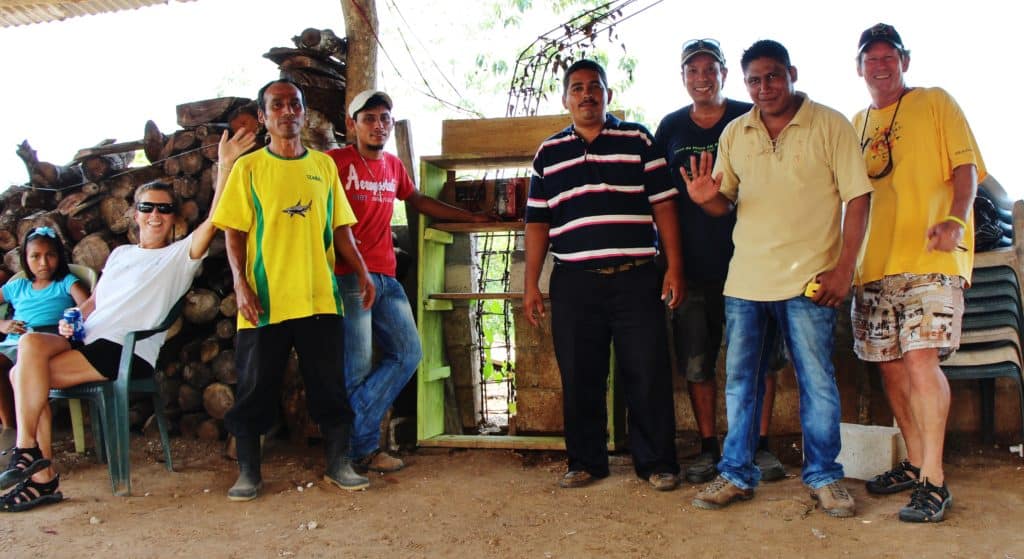
Cruisers in Rio Dulce, Guatemala, are doing more than soaking up breathtaking vistas and eating delicious local fare — they’re improving the lives of locals in remote areas. Using old boat batteries and solar panels, volunteers of Pass It On Guatemala (passitonguatemala.org) are lighting up health clinics, community centers and schools in villages lacking electricity. The villagers are taught how to assemble, install and maintain the systems. So far, 17 communities have benefited from this effort.
The volunteers endure long bus rides and hike for miles over rugged terrain to deliver the basic lighting setups. It’s not for the frail or faint of heart. The trail leading to the village of San Juan de Pacayal was rumored to have been the site of attacks by a large puma, which killed several villagers, but it didn’t stop volunteers from trekking there with one of their lighting rigs.
Julia Bartlett, a tough, independent-thinking British cruiser who came to Rio Dulce in 2009, is the engine behind Pass It On. At 72 years old, she is indefatigable and as strong as a person half her age. When we donated our old mainsail to the organization, she carried it down the dock like it was nothing. In her makeshift office in the library at Mar Marine, she explained to me how it all started.
“Tim and Pam Pennington, on the schooner Pamela Ann, put together a used solar panel and battery with a simple breaker box to set up lights in the home of a Guatemalan friend who was working on their schooner. I was aware that most rural villages are off the grid, and I thought there must be other boats updating their solar systems and batteries. Even used ones easily run a few LED bulbs. So I put out a call on the Rio Dulce VHF net and donations started to arrive.”
Tim Pennington continues to oversee the technical side of the operation. The former fire chief of Rio Dulce, Rita Rabre provides information and advice about the culture and how to best approach locals. Rabre’s husband, Daniel, a rural health worker, pinpoints which villages are most in need. Along with Bartlett, who is the chief organizer and fundraiser, they are the core team of Pass It On.
The solar-panel project is 99 percent funded by the sale of castoffs from the cruising community. “Cruisers are welcome to bring anything they are discarding and leave it in my cockpit. We are donated anything from old shoes and golf clubs to beautiful sails and used dinghies,” says Bartlett. She takes no salary, though it has become a full-time job.
The organization recently started donating inflatable solar lanterns (Luci lights) to households with school children so kids can study at home after dark. Two villages are currently employing these lanterns, and four more will soon be recipients because 192 more lanterns are on the way.
The appeal of the organization, says Bartlett, is this: “During a hurricane-season layup, we cruisers need more to do than boat work and sightseeing, and Pass It On Guatemala offers that. It’s a chance to get involved in the community and contribute while having fun and adventures. Occasionally we get a bit more adventure than we planned for, just like cruising.”








